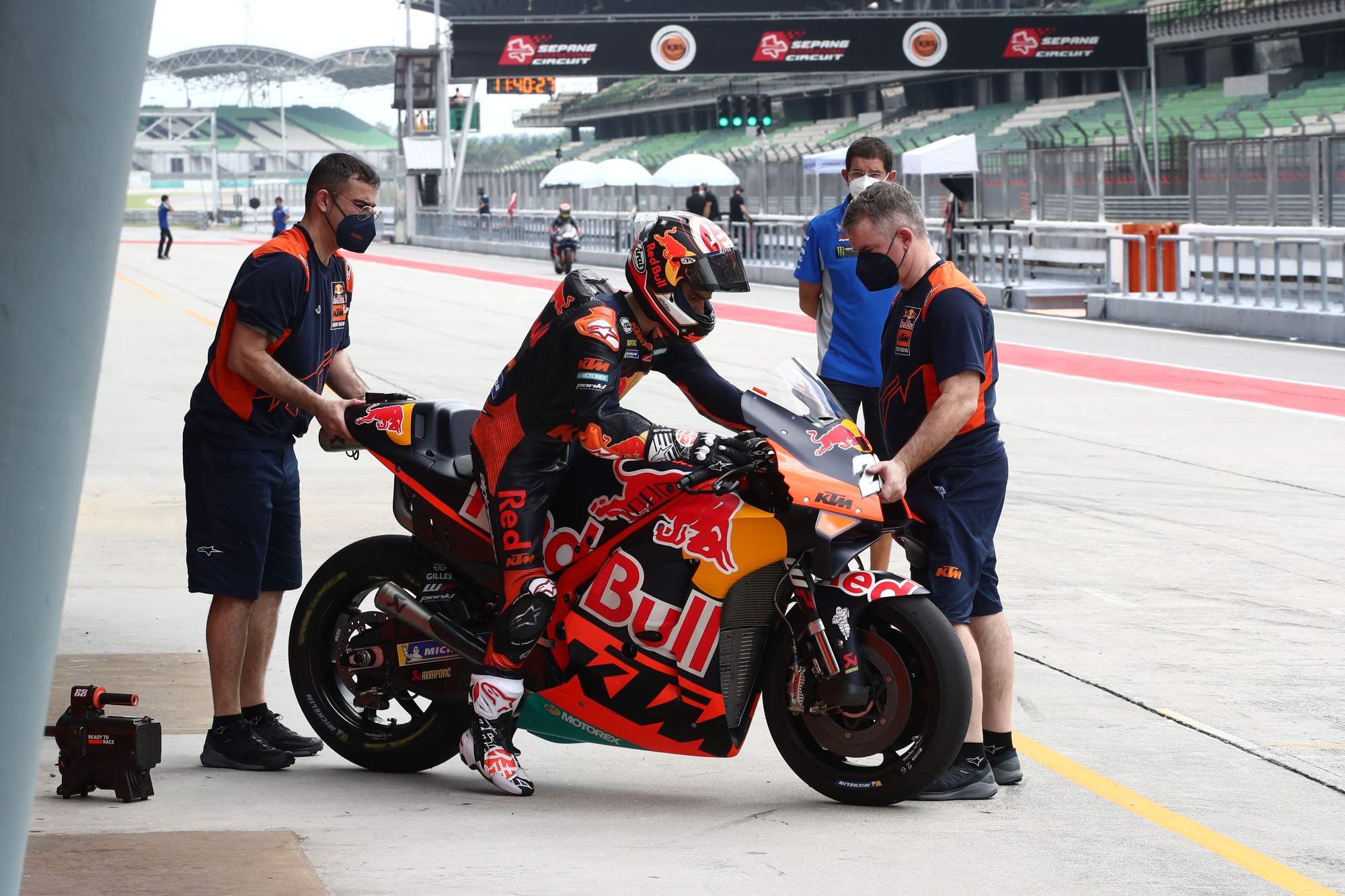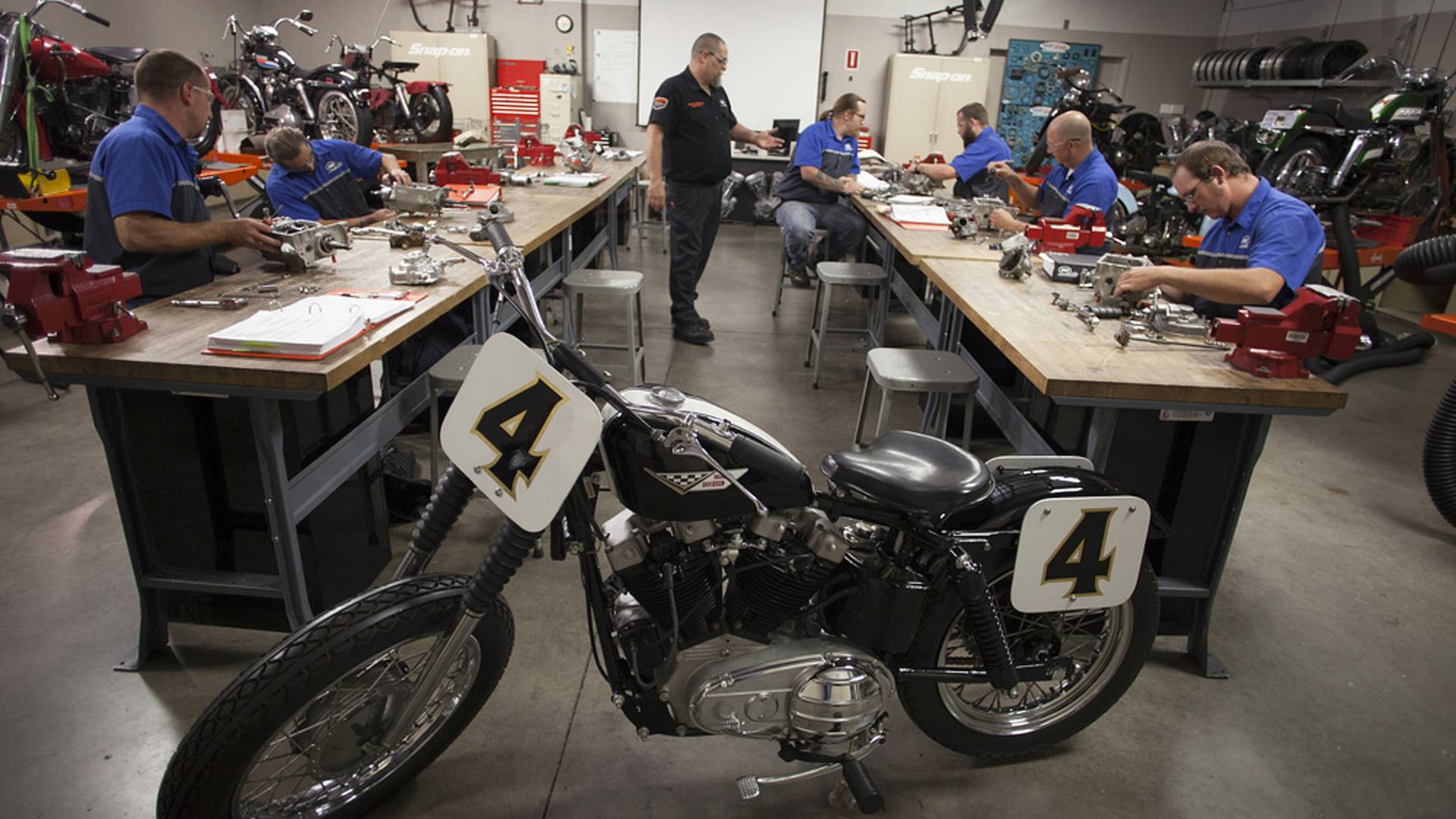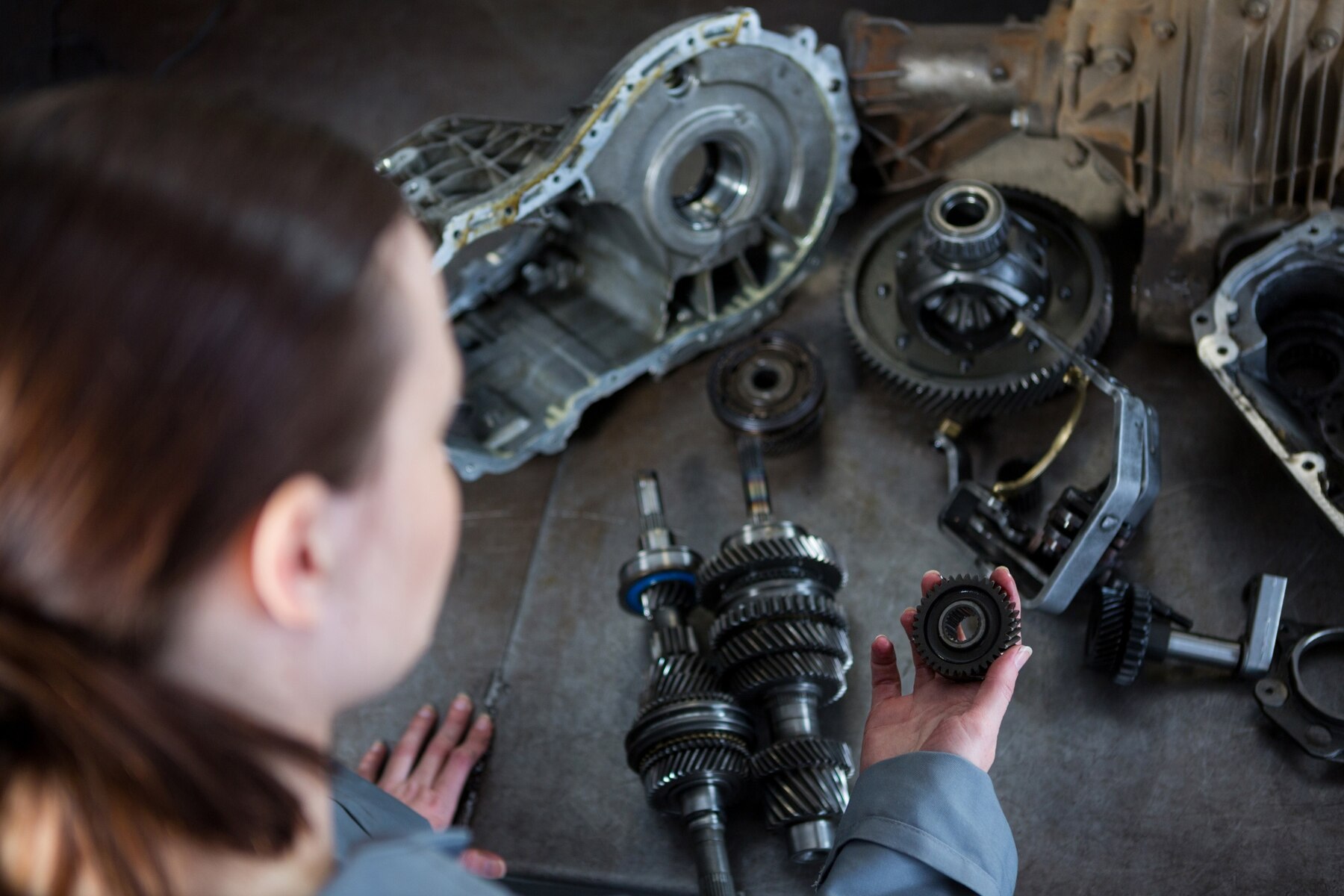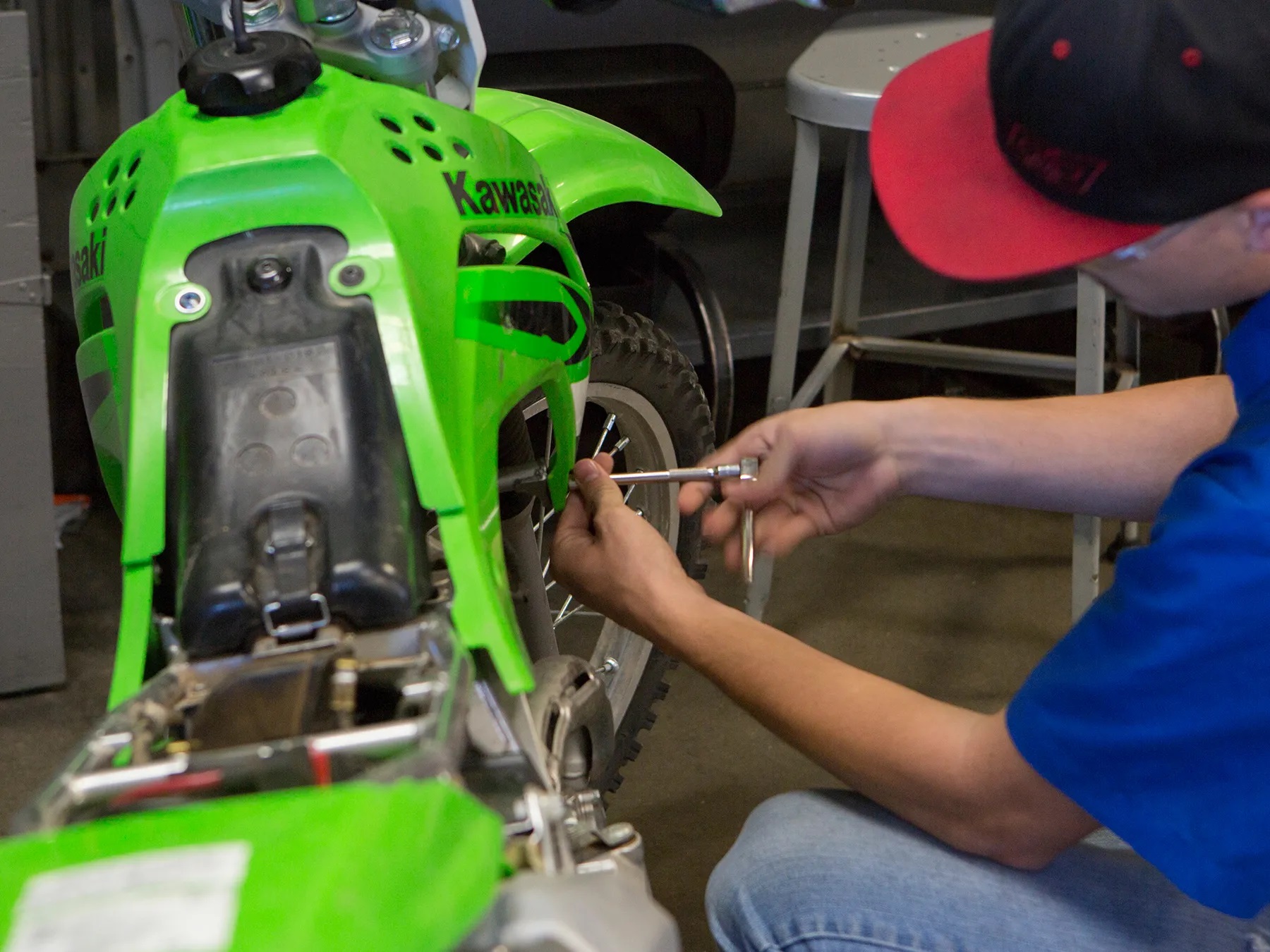admin
Staff member
We all know how tempting a twisty series of corners can be when riding. You and the bike in perfect harmony, flicking left and right through the endless turns. But to make sure that your bike can handle the demands of those canyon and mountain roads, it needs to be in tip-top shape. That is where motorcycle mechanics enter the picture.
Becoming a qualified motorcycle mechanic in the USA is a multi-stage process, yet if you have the will, the passion, and the love of two wheels, it’s a career choice with many rewarding possibilities. In this guide, we’ll delve through the education, certifications, and on-the-job training that you will go through to launch your career.
Before taking that first step toward your career, it’s essential to grasp the nature of motorcycle mechanic jobs. Motorcycle mechanics, also quite often called motorcycle technicians, are certified professionals responsible for diagnosing, repairing, and maintaining pretty much anything with two wheels and an engine between them. Their expertise spans a wide range of skills, including engine repairs, brake system maintenance, electrical diagnostics, overall performance optimization, and many others. As you start browsing motorcycle mechanic jobs, pay attention to the various responsibilities and start to get a feel for what areas you might be most interested in.

 A mechanic on a race team has various duties from firing up the bike and getting it warmed up, to changing out the wheels and tires, and everything in between. Image via Motorbike Tire Shop
A mechanic on a race team has various duties from firing up the bike and getting it warmed up, to changing out the wheels and tires, and everything in between. Image via Motorbike Tire Shop
Motorcycle mechanics are also not bound to working at a dealership or garage. In fact, motorcycle mechanic jobs can seamlessly transition into exciting roles with race teams at all levels, for motocross, circuit racing, dirt tracking, the works. Working for these teams is a high-pressure environment, often needing to effect repairs in a very limited timeframe, but the rewards are often well worth it when you can say that you had a hand in getting a bike back into a race between heats, or when your rider comes in the top three.
To excel as a motorcycle mechanic, obtaining the right type of education is crucial. While there is no formal education requirement to enter the field, completing an accredited and certificate-granting program enhances your job opportunities. There are multiple technical colleges, polytechnic schools, and even some university continuing education programs that allow you to gain the skills necessary to excel in your field. Some of these include:

 Practical classrooms like this one deliver both practical and theoretical education hand in hand. Image via RideApart
Practical classrooms like this one deliver both practical and theoretical education hand in hand. Image via RideApart
Choosing the right training program is a key step in your journey to becoming a motorcycle mechanic. Look for programs that provide a combination of a well-rounded curriculum, hands-on experience, and opportunities for internships or apprenticeships, often with local dealerships and garages. Some institutions offer specialized courses that allow students to develop expertise in specific areas or OE brands. This is often one of the earliest ways in your career to gain your Ducati Specialist certification, or your Honda Certified Technician ticket.

 Getting your hands dirty is the only way you’ll get some experience with motorcycle components before you go out to work in the industry.
Getting your hands dirty is the only way you’ll get some experience with motorcycle components before you go out to work in the industry.
While theoretical knowledge is essential and you will likely have to spend some time in the classroom, try to make sure that whatever program you decide on has a mechanics garage set up to do training in. In the most literal sense, hands-on experience is extremely beneficial in securing your first motorcycle mechanic job as well as for advancing in the field. As well, many of the training programs mentioned above will have a relationship with a local dealership to allow for summer internships or even apprenticeships so you can gain valuable industry experience. This is why going through formal training is the most common route to pursue your career.
Once you’ve finished your education, you will most likely come out of it with a basic apprentice mechanics certification. At some schools, you can also come out of the program with a manufacturer’s junior technician certification. It may not seem like it at first, but certifications play a significant role in establishing your credibility and helping you land your choice of motorcycle mechanic job.

 You can often specialize in a manufacturer’s bikes and parts, such as this mechanic training to become a Kawasaki Certified Technician. Image via Universal Technical Institute
You can often specialize in a manufacturer’s bikes and parts, such as this mechanic training to become a Kawasaki Certified Technician. Image via Universal Technical Institute
While they are not mandatory, and you can get motorcycle mechanic jobs without them, certifications also play a key role in wages. It does quite literally pay to be current and up to date with all certifications you might want or need, and often, the more you have adds multiple dollars to your hourly rate. It is also well worth it to go through the apprenticeship and journeyman stages of trade tickets, as having a journeyman certification can add 15% to 20% extra to your hourly pay for a variety of motorcycle mechanic jobs.
You’ve done your training program, have a few certifications and an apprentice ticket, so what’s next? There are plenty of entry-level motorcycle mechanic jobs both at dealerships and indy shops. For long-term career growth, the best thing you can do now is to build up a network of professional contacts, vendor contacts, and the like.
Attend industry events like trade shows, join online forums, and connect with other professionals in the field. Building such a network can open doors to job opportunities, mentorships, as well as uncover valuable insights into the evolving industry landscape of motorcycle mechanics.

 Trade shows like this one for classic motorcycles in the UK are excellent places to trade business cards, talk shop, and build up your network. Image via British Motorcycle Dealer News
Trade shows like this one for classic motorcycles in the UK are excellent places to trade business cards, talk shop, and build up your network. Image via British Motorcycle Dealer News
Even better, through the network you develop, you can access a massive amount of support for placement in your preferred motorcycle mechanic job. Before many jobs and career opportunities become publicly listed, they are frequently offered internally. Having connections with the right industry insiders can help you get an interview for these motorcycle mechanic jobs before they are officially announced. It’s basically a great way to kick-start your career!
These networks can also help you learn about ongoing training and learning opportunities for sub-specializations. Perhaps you are interested in becoming a mechanic for a motorcycle race team. Having a few years of “real-world” experience, plus a training course on diagnosing and repairing racing superbikes, could be just the edge you need to get in. Always have your ear to the ground, let your network know you are always looking to learn more, and your career as a motorcycle mechanic can take off rapidly from there!
Becoming a skilled motorcycle mechanic in the USA is a rewarding journey that requires dedication, education, hands-on experience, and a commitment to ongoing learning. By doing so, you will keep hundreds, maybe thousands of riders happily ripping through the twisties or rumbling down a long stretch of highway, certain in the knowledge that a trained professional motorcycle mechanic has looked after their baby.

 What it’s all about in the end…
What it’s all about in the end…
For the technically minded, working in a motorcycle mechanic job is quite often as fulfilling as going on rides yourself. Both have their share of challenges to overcome, give you a sense of excitement that is rarely found if you don’t understand why two wheels are better than four, and at the end of it all, it’ll give you a promising and rewarding career.
The post Career Advice: How To Become a Motorcycle Mechanic appeared first on webBikeWorld.
Continue reading...
Becoming a qualified motorcycle mechanic in the USA is a multi-stage process, yet if you have the will, the passion, and the love of two wheels, it’s a career choice with many rewarding possibilities. In this guide, we’ll delve through the education, certifications, and on-the-job training that you will go through to launch your career.
The Role of a Motorcycle Mechanic
Before taking that first step toward your career, it’s essential to grasp the nature of motorcycle mechanic jobs. Motorcycle mechanics, also quite often called motorcycle technicians, are certified professionals responsible for diagnosing, repairing, and maintaining pretty much anything with two wheels and an engine between them. Their expertise spans a wide range of skills, including engine repairs, brake system maintenance, electrical diagnostics, overall performance optimization, and many others. As you start browsing motorcycle mechanic jobs, pay attention to the various responsibilities and start to get a feel for what areas you might be most interested in.

 A mechanic on a race team has various duties from firing up the bike and getting it warmed up, to changing out the wheels and tires, and everything in between. Image via Motorbike Tire Shop
A mechanic on a race team has various duties from firing up the bike and getting it warmed up, to changing out the wheels and tires, and everything in between. Image via Motorbike Tire ShopMotorcycle mechanics are also not bound to working at a dealership or garage. In fact, motorcycle mechanic jobs can seamlessly transition into exciting roles with race teams at all levels, for motocross, circuit racing, dirt tracking, the works. Working for these teams is a high-pressure environment, often needing to effect repairs in a very limited timeframe, but the rewards are often well worth it when you can say that you had a hand in getting a bike back into a race between heats, or when your rider comes in the top three.
Education
To excel as a motorcycle mechanic, obtaining the right type of education is crucial. While there is no formal education requirement to enter the field, completing an accredited and certificate-granting program enhances your job opportunities. There are multiple technical colleges, polytechnic schools, and even some university continuing education programs that allow you to gain the skills necessary to excel in your field. Some of these include:

 Practical classrooms like this one deliver both practical and theoretical education hand in hand. Image via RideApart
Practical classrooms like this one deliver both practical and theoretical education hand in hand. Image via RideApart- Motorcycle Mechanics Institute (MMI): MMI is the leading institution specializing in motorcycle technician training. They provide comprehensive programs for anyone interested in motorcycle mechanic jobs, covering various aspects of motorcycle maintenance and repair.
- Local Polytechnic or Undergraduate Schools: Post-secondary schools such as Cal Poly in California offer two or four semester courses that can help prepare you for a variety of motorcycle mechanic jobs.
- Private Training Certified By The National Automotive Technicians Education Foundation (NATEF): NATEF accreditation ensures that a program meets industry standards. While almost every post-secondary school has this certification, some private training schools with lower enrollment and more one-on-one training might have it, while others do not.
Choosing the right training program is a key step in your journey to becoming a motorcycle mechanic. Look for programs that provide a combination of a well-rounded curriculum, hands-on experience, and opportunities for internships or apprenticeships, often with local dealerships and garages. Some institutions offer specialized courses that allow students to develop expertise in specific areas or OE brands. This is often one of the earliest ways in your career to gain your Ducati Specialist certification, or your Honda Certified Technician ticket.
Hands-On Experience

 Getting your hands dirty is the only way you’ll get some experience with motorcycle components before you go out to work in the industry.
Getting your hands dirty is the only way you’ll get some experience with motorcycle components before you go out to work in the industry. While theoretical knowledge is essential and you will likely have to spend some time in the classroom, try to make sure that whatever program you decide on has a mechanics garage set up to do training in. In the most literal sense, hands-on experience is extremely beneficial in securing your first motorcycle mechanic job as well as for advancing in the field. As well, many of the training programs mentioned above will have a relationship with a local dealership to allow for summer internships or even apprenticeships so you can gain valuable industry experience. This is why going through formal training is the most common route to pursue your career.
Getting a Job & Obtaining Certifications
Once you’ve finished your education, you will most likely come out of it with a basic apprentice mechanics certification. At some schools, you can also come out of the program with a manufacturer’s junior technician certification. It may not seem like it at first, but certifications play a significant role in establishing your credibility and helping you land your choice of motorcycle mechanic job.

 You can often specialize in a manufacturer’s bikes and parts, such as this mechanic training to become a Kawasaki Certified Technician. Image via Universal Technical Institute
You can often specialize in a manufacturer’s bikes and parts, such as this mechanic training to become a Kawasaki Certified Technician. Image via Universal Technical Institute While they are not mandatory, and you can get motorcycle mechanic jobs without them, certifications also play a key role in wages. It does quite literally pay to be current and up to date with all certifications you might want or need, and often, the more you have adds multiple dollars to your hourly rate. It is also well worth it to go through the apprenticeship and journeyman stages of trade tickets, as having a journeyman certification can add 15% to 20% extra to your hourly pay for a variety of motorcycle mechanic jobs.
Building a Professional Network
You’ve done your training program, have a few certifications and an apprentice ticket, so what’s next? There are plenty of entry-level motorcycle mechanic jobs both at dealerships and indy shops. For long-term career growth, the best thing you can do now is to build up a network of professional contacts, vendor contacts, and the like.
Attend industry events like trade shows, join online forums, and connect with other professionals in the field. Building such a network can open doors to job opportunities, mentorships, as well as uncover valuable insights into the evolving industry landscape of motorcycle mechanics.

 Trade shows like this one for classic motorcycles in the UK are excellent places to trade business cards, talk shop, and build up your network. Image via British Motorcycle Dealer News
Trade shows like this one for classic motorcycles in the UK are excellent places to trade business cards, talk shop, and build up your network. Image via British Motorcycle Dealer NewsEven better, through the network you develop, you can access a massive amount of support for placement in your preferred motorcycle mechanic job. Before many jobs and career opportunities become publicly listed, they are frequently offered internally. Having connections with the right industry insiders can help you get an interview for these motorcycle mechanic jobs before they are officially announced. It’s basically a great way to kick-start your career!
These networks can also help you learn about ongoing training and learning opportunities for sub-specializations. Perhaps you are interested in becoming a mechanic for a motorcycle race team. Having a few years of “real-world” experience, plus a training course on diagnosing and repairing racing superbikes, could be just the edge you need to get in. Always have your ear to the ground, let your network know you are always looking to learn more, and your career as a motorcycle mechanic can take off rapidly from there!
The Sky’s the Limit From There
Becoming a skilled motorcycle mechanic in the USA is a rewarding journey that requires dedication, education, hands-on experience, and a commitment to ongoing learning. By doing so, you will keep hundreds, maybe thousands of riders happily ripping through the twisties or rumbling down a long stretch of highway, certain in the knowledge that a trained professional motorcycle mechanic has looked after their baby.

 What it’s all about in the end…
What it’s all about in the end… For the technically minded, working in a motorcycle mechanic job is quite often as fulfilling as going on rides yourself. Both have their share of challenges to overcome, give you a sense of excitement that is rarely found if you don’t understand why two wheels are better than four, and at the end of it all, it’ll give you a promising and rewarding career.
The post Career Advice: How To Become a Motorcycle Mechanic appeared first on webBikeWorld.
Continue reading...


